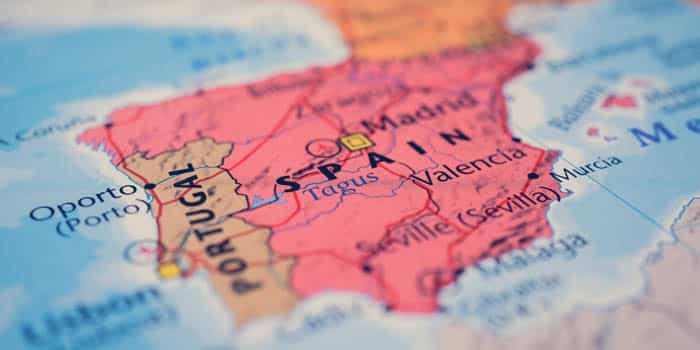- Casino
- By State
- Alabama
- Alaska
- Arizona
- Arkansas
- California
- Colorado
- Connecticut
- Delaware
- Georgia
- Florida
- Hawaii
- Idaho
- Illinois
- Indiana
- Iowa
- Kansas
- Kentucky
- Louisiana
- Maine
- Massachusetts
- Maryland
- Michigan
- Minnesota
- Mississippi
- Missouri
- Montana
- Nebraska
- Nevada
- New Hampshire
- New Jersey
- New Mexico
- New York
- North Carolina
- North Dakota
- Ohio
- Oklahoma
- Oregon
- Pennsylvania
- Rhode Island
- South Carolina
- South Dakota
- Tennessee
- Texas
- Utah
- Vermont
- Virginia
- Washington
- West Virginia
- Wisconsin
- Wyoming
- By State
- Slots
- Poker
- Sports
- Esports
Jdigital Says Government Restricts Gambling Ideologically

According to Jdigital, Spain’s government has overshot in imposing gambling restrictions motivated not by hard data, but by ideological reasons.
Jdigital Criticizes Spanish Government for Ideological Gambling Restrictions
After submitting a request to the European Commission to introduce restrictive gambling measures in the country, Spanish officials have been criticized by the country’s digital gambling association, Jdigital. According to the association, the measures submitted to the European Commission were disproportionate to their intended purpose.
Originally introduced in February as part of a broader move to protect Spanish consumers, these measures may now become a permanent part of the regulatory make-up in the country. Among the featured measures are bans on gambling advertisements on TV and radio, and moving what advertisement is left to 1:00 AM and 5:00 AM.
According to Jdigital, the severity of the measures doesn’t adequately reflect on the potential harms that the measures are trying to prevent. Worse still, Spain is introducing an “ideological law” that isn’t founded in hard data.
Restrictions Always Empower Illegal Gambling Operations
Jdigital cited data which indicated that during the lockdown period, given the restrictive measures, there was an increase in the volume of illegal gambling. Jdigital analyzed the number of requests submitted to the government to shut down illegitimate operators.
Estimated 414 complaints were submitted between April and May asking for such closures. Jdigital explained that the result constituted twice the number registered in 2019 during the same period. The data, Jdigital said, pointed to the fact that there had been a significant uptick in the number of illegal websites targeting Spanish citizens.
Restricting all gambling operators would make it difficult for consumers to tell regulated and offshore gambling websites from one another and lead to systematic failures in terms of responsible gambling, gambling addiction and money safety, Jdigital noted.
Another criticism that Jdigital directed at the government was the fact that the law didn’t specifically analyze who the vulnerable groups were, but rather imposed a blanket ban, and therefore, the measure was motivated with ideological reasons.
The government has evidently chosen a much more lenient approach towards state-owned companies, such as ONCE and SELAE, while enforcing much stricter measures on private businesses.
Spain Isn’t a Nation of Problem Gamblers
Jdigital also touched on the subject of problem gambling. According to the association, between 0.3% and 0.5% of the population was showing signs of gambling addiction. The association explained that the official data should be used to determine the government’s policy towards gambling.
Jdigital pulled another interesting statistic, whereby addiction to tobacco and spirits was at 34% and 5.1% respectively. Yet the measures to curb those activities weren’t nearly as intense as the newly-submitted anti-gambling measures.
More importantly, Jdigital believed, the government has failed in upholding the principles of competition and the free market. The new set of restrictions was led by Alberto Garzon, the country’s consumer protection minister.
Previously, gambling in Q1, 2020 increased by 12.5% year-over-year. Spain has seen tremendous growth in the size of its online and retail gambling operations in the past several years.
Although Fiona doesn't have a long-spanning background within the gambling industry, she is an incredibly skilled journalist who has built a strong interest in the constantly growing iGaming network. The team at Gambling News is glad to have her on our roster to help deliver the best stories as soon as they hit. Aside from writing, she loves to dabble in online casino games such as slots and roulette, both for her own enjoyment and also as research to better improve her understanding of the industry.
Must Read
Legal
June 26, 2025
Entain Loses Trademark Battle in EU Copyright Clash
More Articles






Industry
June 26, 2025
Spain’s Gambling Ad Ban Cuts New Accounts by 55%

Industry
February 11, 2025
DGOJ Welcomed Spanish Operators and Regulators in Latest AML Meeting

Casino
February 7, 2025
Royal Caribbean Drops Wine Bar in Favor of Non-Smoking Casino

Industry
December 10, 2024
Spain Records 14.4% GGR Growth in Q3 2024

Industry
November 20, 2024
Spain Issued $69M in Fines to 15 Operators in H1 2024









